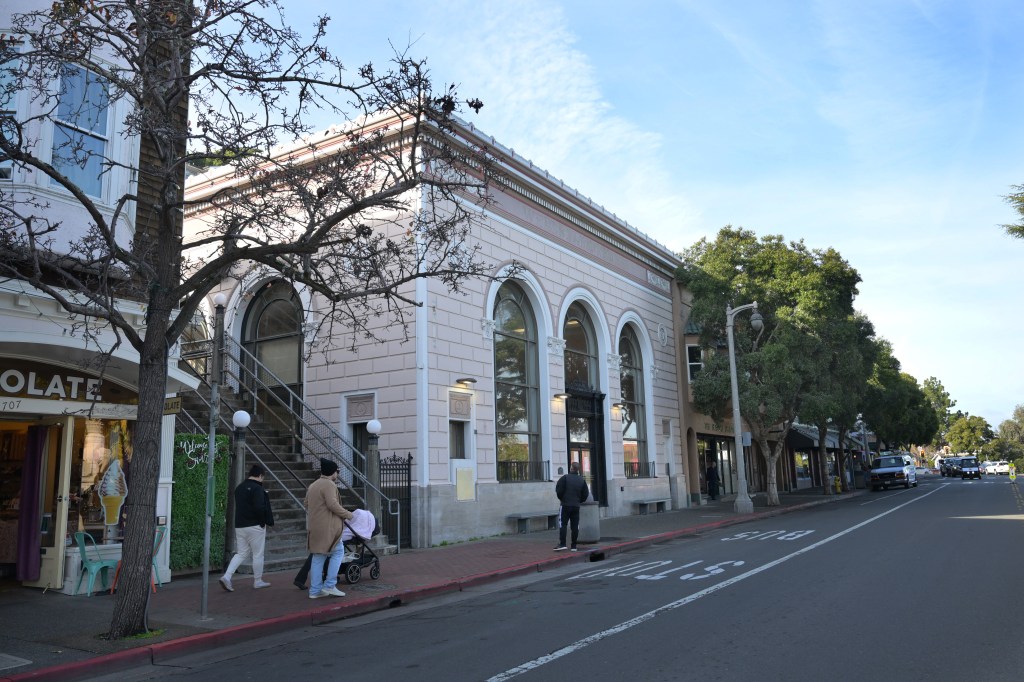Sausalito’s decision to repeal an affordable housing law to allow a hotel project amounts to “illegal and unconstitutional spot zoning,” a lawsuit alleges.
The lawsuit aims to block a plan to convert the old Wells Fargo bank into a small inn and restaurant. The plaintiff is Sharon Conn, who lives just uphill from the building in the heart of the tourist hub.
The city “abused its discretion by changing its zoning laws for the benefit of a single development project,” Conn’s lawyer, Elizabeth Brekhus, wrote in the lawsuit.
Mayor Joan Cox declined to comment on the lawsuit, which the City Council discussed in a closed session on Tuesday. Conn also declined to comment Tuesday.
Project developer Kent Ipsen, who owns a similar enterprise in Carmel called Inn the Pocket, did not respond to a request for comment.
Marin County Superior Court has scheduled a case management conference for Dec. 1.
The controversy centers on city-approved plans to convert the former bank into a ground-floor restaurant and second-floor hotel with three guest suites.
The project has been controversial for nearly a year. Nearby residents have opposed the remodel, citing potential noise issues. Downtown business boosters defended it as a welcome addition to the city’s historic center in a prominent vacant building.
The Sausalito Planning Commission approved the project in December. Conn appealed that decision to the City Council, which remanded it to the Planning Commission.
Ipsen scaled back plans for a courtyard behind the bank to include outdoor seating, a viewing deck, hot tub and two fire pits. He agreed to limit the hotel occupancy to 28 people, including overnight guests and their visitors. The Planning Commission and City Council approved the plans over the summer.
Conn’s lawsuit reiterated the noise concerns and said the upstairs guest suites were not permitted under the city’s prior zoning code.
“This large space has the blessing of the city to host catered parties,” the lawsuit said. “Such use will generate noise far in excess of that generated by the residential use contemplated in the General Plan.”
Conn has lived behind the former bank for 42 years, the suit said.
Last May, the council, acting on the recommendation of city planners, repealed the requirement that the second floor of business district buildings be reserved for affordable housing. The inclusionary zoning repeal came after staff presentations that found it had failed to produce more housing and noted that several established businesses had expanded to their second floor, placing them in non-compliance.
Conn’s lawsuit contends the city also repealed its inclusionary zoning for the benefit of the bank conversion.
“The City clearly attempted to artfully draft this Zoning Amendment,” it said. “The City Council did not approve Petitioner’s appeal despite the clear merit of her argument the Project violated the zoning code.”
The lawsuit seeks temporary and permanent injunctions blocking the bank conversion from going forward.

